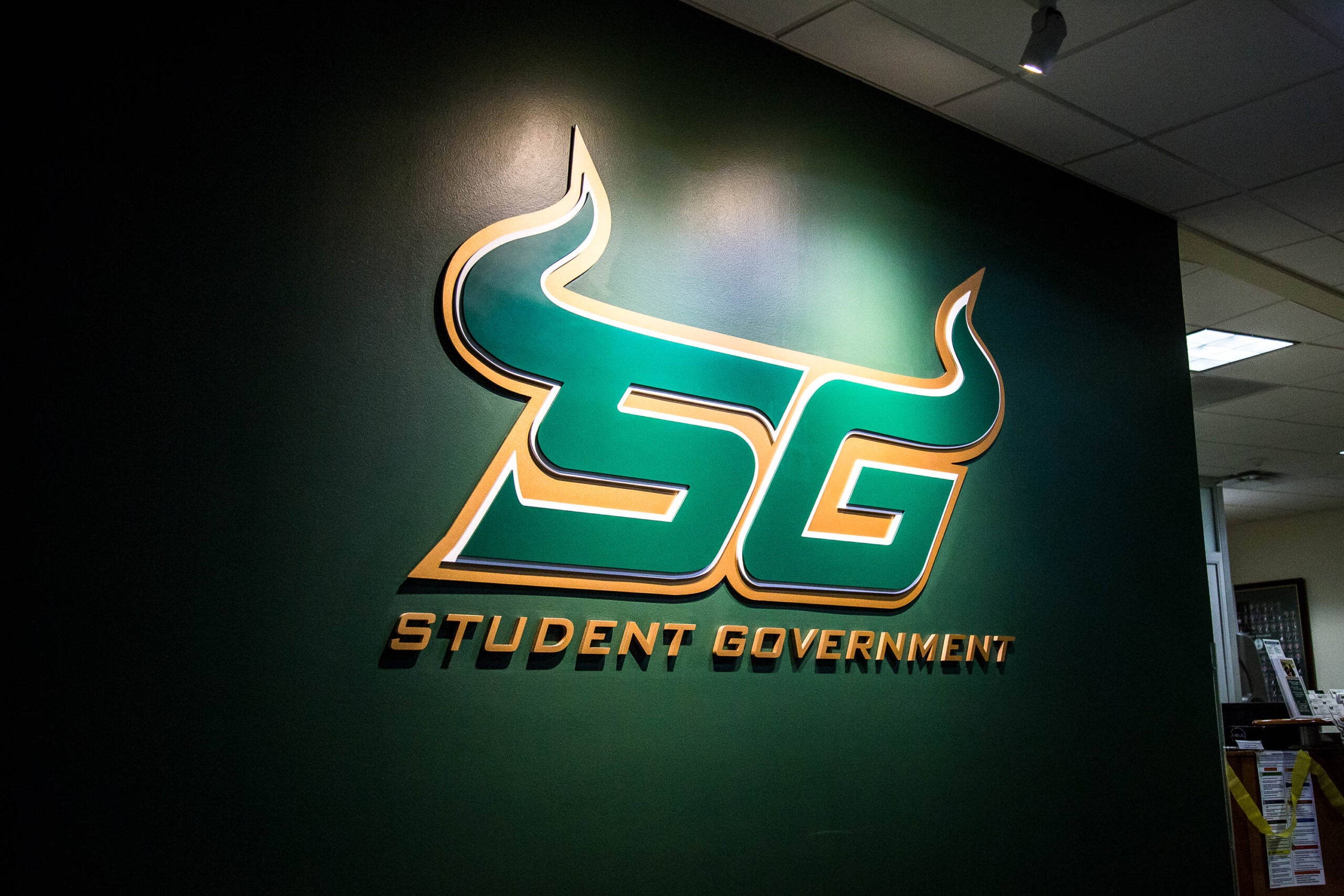Students propose ways to address lack of accessible resources on campus

Given senior world languages and cultures major Kevin Moore’s interest in studying foreign languages, taking immersive language courses as a deaf individual has posed various challenges related to accessing appropriate hearing devices and interpretation methods.
While his professors and Student Accessibility Services have been understanding of his accommodations, Moore said he has continuously struggled with USF not having a sign language interpreter available for his Mandarin Chinese courses. As his lectures are conducted entirely in Mandarin, he added that trying to understand Mandarin-English captioning in real time has been difficult.
“I feel like awareness, especially for people working at USF, could really benefit students with disabilities. I’m sure that teachers have some kind of education requirement, just like they have to take classes to be more politically correct and socially aware,” Moore said.
“Maybe if we make education on disabilities a little more in depth, or a little bit more of how you can accommodate a specific people without needing to walk on eggshells, it would make communication so much easier, quicker and smoother for both parties.”
Work to change campus disability accommodations has been assisted by senior social work major and student disability advocate Simone Till. As someone who lives with severe hearing loss, Till said it’s essential for non-disabled members of campus to learn more about the struggles faced by disabled students daily.
After months of advocating for structural change in campus disability protocols, she is hopeful her new partnership with Student Government (SG) can help address accessibility concerns.
Following two meetings with the SG Tampa Governor Joey Cipriano, Till has proposed a series of initiatives to remedy current issues surrounding accessibility. Some of which include the installation of audio announcements at BullRunner bus stops for visually impaired students and use of quiet spaces for students with sensory disorders to decompress.
For Cipriano, Till’s efforts to create a partnership between disabled students and SG has been both appreciated and motivating when thinking of changes he would like to make during his term. Cipriano said he is excited to see what positive developments SG and Till’s newest initiative, a student-led Accessibility Committee, will have for disabled students.
“It should be about equitability on this campus for our disabled students because it’s not about equality,” Cipriano said. “We all have an equal opportunity to use the doors or anything else, but it’s about being equitable because not everyone can open the door themselves and other things like that.
“There’s so many things I hadn’t even thought of prior to Simone, such as issues surrounding visually impaired students needing announcements for bus stops. These things may not affect me personally, but if they did, I would want them addressed. So I want to make sure to address it for all of our students who deal with disabilities.”
The task force will be composed of no more than 10 members and split between SG representatives and disabled students, according to Cipriano. While an official date has not been established for its formation, he said he hopes to work with Simone to select members by the end of this semester.
As president of USF’s Best Buddies organization, a club promoting social and networking opportunities for individuals with disabilities, junior behavioral health care major Claire Wisth has watched club members undergo similar struggles with accessing accommodations for their courses and campus events.
“There’s a lot of importance in having a support group because there’s students at USF who need these accommodations and who often don’t have a voice because they have disabilities,” Wisth said. “I think we should be more welcoming because these students probably feel really alone and that’s not what we want to do on a big college campus.”
Developing understanding for individuals with disabilities must begin with compromise, according to Moore. Although it might require people without disabilities to make efforts to accommodate the needs of disabled individuals, he said promoting compassion should be important regardless of one’s physical or mental abilities.
“People need to understand that in most situations, people with disabilities cannot fit into the box that you want us to fit in and not one size can fit all. We can only grow and develop when we are given the accommodations that we need and the tools necessary to grow in our own way of normal,” he said.
“Not only are we trying to live, but we’re trying to survive in a world that isn’t made for us. We’re trying to understand and hear you and I can’t do that 100% accurately. I need you to meet us where we both can find a balance instead of us going back and forth trying to understand one another.”







